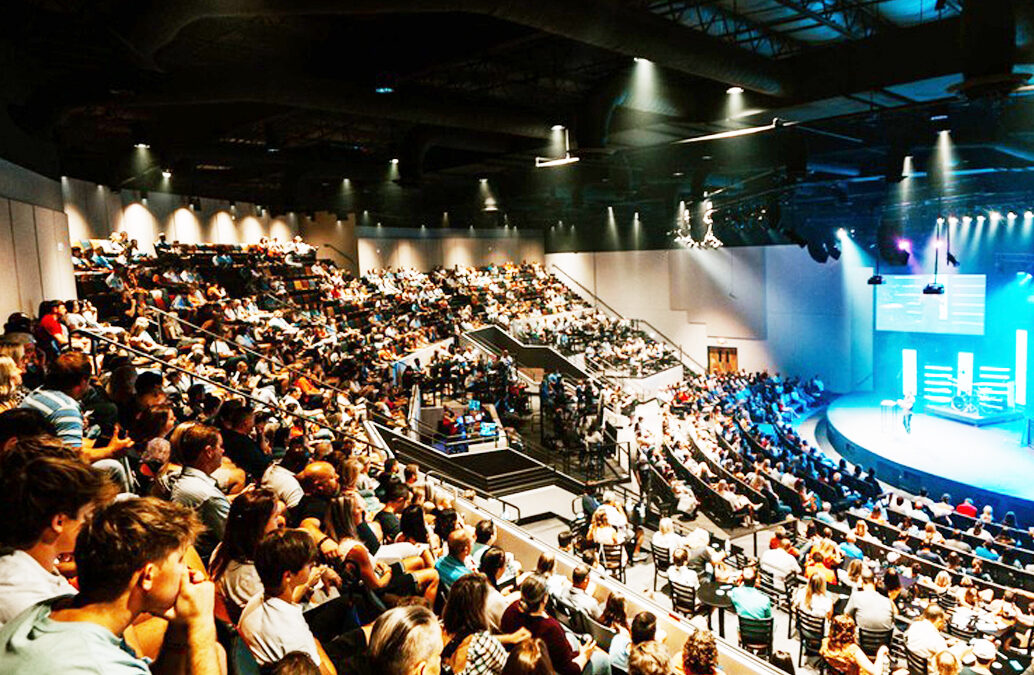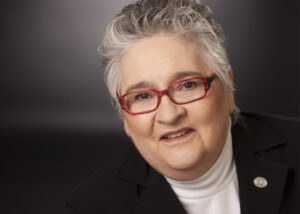
PAX Global Works With Local Churches & Christian Ministries is Linda Lysakowski’s take on raising major gifts within houses of worship. Let’s hear what America’s Fundraiser has to share:
In a local church, you have the advantage of a “captive audience.” You know your regular members will be there on a least a weekly basis, so there are a number of ways you can present the case to them. In a homily, sermon, or reflection is one possibility, although most clergy do not want to be viewed as “the one who is always asking for money.” And I get that! Most worshipers come to hear the word of God, not about the place of worship’s financial needs. But there could be several ways of handling this. First the clergy person could make a “pulpit announcement” before or at the end of the service. This announcement should dwell on the exciting growth that is happening and how important it is for the congregation to be in a vibrant place of worship that is growing. The focus is not on money, but more on “casting the vision.”
Another way might be to have laypeople make these announcements, which relieves the clergy from being viewed as someone who is always asking for money. A video or a PowerPoint presentation could be shown.
PAX Global Works With Local Churches & Christian Ministries
A good example of how the news should be presented can be to show the people who benefit from the project for which you are raising money. I recall a vivid example of this from my own Archdiocese, which ran an annual stewardship appeal. In past years there was always a brochure sent to every member of every parish in the archdiocese and this brochure mostly featured photos of the archbishop. Now this archbishop is a wonderful man, well respected throughout the territory he served, but seeing a bunch of pictures of the archbishop did nothing to excite people. When the archdiocese hired its first Director of Development, the focus changed, the brochure that year had pictures of the Catholic Social Services serving meals to the unhoused, pictures of young seminarians studying for the priesthood, and photos of the local university’s Newman Center, which provided sacraments, social activities, and study for students. Result of this seemingly small change? I, for one, doubled her annual gift to the archdiocesan collection and made another gift of equal size to the Vocations office. Then, after a persuasive appeal my pastor, I more than doubled last years’ gift to my church. Little things do matter!
Another church that I helped raise $20,000,000 to fund a major expansion program, held small house meetings in the homes of members where the case was presented by the pastor and the meeting host, and later follow up calls were made to ask for major gifts.
Awareness Events
If your ministry is a more generalized one that serves the greater community, you will want to conduct a Major Awareness Event. You may also consider this event for your religious place of worship, especially if the congregation is not aware of your needs at all.
But wait, didn’t I tell you events were time consuming, a drain on staff and volunteers, and often not effective monetarily? Yes, and I still stand by my dread for special events fundraising. However, I am now talking awareness, not fundraising.
One of the key components of the Major Gift Ramp Up program is the non-ask event. If yours is a community based ministry, once you have uncovered a list of the people in your community who are capable of making significant gifts, you need to figure out which of these people are likely to support your organization. How do you determine this interest? You invite them to an event and those who are interested will select themselves. Those who have an interest in your mission will attend your event or will let you know they are interested but have other plans for that day.
Let’s make it perfectly clear—this is not a gala where people pay $100, $500, $1,000 to attend and at the end of the evening everyone has had a good time, and they consider the price they paid to attend the event to be their contribution. You will make it clear in the invitation that this event is for the prospective donors and your organization to get to know each other—there is no charge for the event, and you will not be taking up a free will offering to cover the cost of the event. The event does not have to cost you a fortune. A simple lunch of soup and salad, or a box lunch with a sandwich, chips, and a cookie will suffice. You might try to get a sponsor to cover the luncheon, outside of the people you are inviting to attend the event, making it even less costly. You will invite all the people on your major gift prospect list, but don’t worry if they don’t all attend the event. The ones who are really interested in your organization will be there or will indicate their interest in learning more.
So, what does happen at this event? The most successful events honor someone in the community who has done something outstanding in support of your cause—someone whose name will attract people to attend. For example, a well-known local, or even national celebrity, who has advocated or worked for your mission. For example, if your organization focuses on housing the poor, imagine if you had Jimmy Carter as your honoree. How many people would show up just for the opportunity to meet Mr. Carter? But it doesn’t have to be an internationally known celebrity. Perhaps there is a local CEO, socialite, or well-known politician who has spoken out for your cause, served as a founder of your organization, or took the lead in getting legislation passed that helped your organization. Presenting this person with an award will attract a lot of media attention, and the right people will attend your event.
If you are raising money for a house of worship, this event may have a slightly different flavor. Your attendees will be members of your congregation. And you may not want to recognize anyone in particular. But you can still invite your members to a social event to announce your campaign and present your case.
Follow up is critical. At the event, although you will not ask for money, you are trying to identify those who would like to pursue further conversation on how they can get involved with your campaign—either by donation or by serving on your Campaign Cabinet. You should ask if attendees would meet with you to learn more. And follow up with all attendees soon after the event. From these attendees you will be able to form a Campaign Cabinet of volunteers who will help you raise the money you need.
PAX Global & Major Gifts Ramp-Up
PAX Global ensures MINISTRIES, LOCAL CHURHCES and INTERNATIONAL MISSIONS ORGANIZATIONS have professional access to the Major Gifts Ramp-Up Model (MGRU). Major Gifts Ramp-Up is used by nonprofits around the world to raise the millions they need to accomplish their important mission by engaging by big gift donors who provides charities the financial-capacity they require to achieve sustainability.
PAX Global Works With Local Churches & Christian Ministries was first posted at 501c3.Buzz

 LINDA LYSAKOWSKI is one of only sixty-seven people worldwide to hold the Advanced Certified Fundraising Executive designation. She has been a speaker at local, regional, and national fundraising conferences for more than twenty years. She was recently named America’s Fundraiser by
LINDA LYSAKOWSKI is one of only sixty-seven people worldwide to hold the Advanced Certified Fundraising Executive designation. She has been a speaker at local, regional, and national fundraising conferences for more than twenty years. She was recently named America’s Fundraiser by